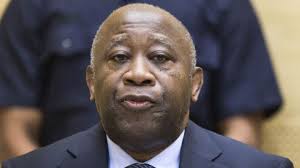News
ICC Orders Release Of Former Ivory Coast’s Gbagbo

The International Criminal Court finally freed former Ivory Coast president Laurent Gbagbo today after his shock acquittal last month of crimes against humanity.
Judges agreed to release the 73-year-old ex-strongman and his aide Charles Ble Goude on condition that he lives an as-yet unspecified country pending an appeal by the prosecution.
The first former head of state to stand trial in The Hague, Gbagbo was found not guilty on January 15 over a wave of violence after disputed elections in the west African nation in 2010.
More than 3,000 people died on both sides after Gbagbo refused to concede defeat to his internationally backed-rival, and now-president, Alassane Ouattara.
ICC appeals judge Chile Eboe-Osuji said the court would release them “to a state willing to accept them on its territory and willing to enforce the conditions set” by the court.
Ivory Coast is an ICC member state, but the court may be unwilling to send Gbagbo to his homeland, given that it has refused to surrender Gbagbo’s wife Simone despite an outstanding ICC warrant for her arrest.
Lawyers have previously cited the arrangement reached with former DR Congo warlord Jean-Pierre Bemba, who went to Belgium after he was cleared by the ICC last year.
The court ordered officials to make “appropriate interim arrangements” to find somewhere for Gbagbo to stay until a final country is found.
Gbagbo’s lawyers had argued that he should be released without any conditions and free to return to Ivory Coast.
“It is impossible to limit the freedom of an innocent person,” where there are no exceptional circumstances, chief defence lawyer Emmanuel Altit told the court earlier Friday.
– Disputed election –
Gbagbo and Ble Goude went on trial in January 2016 accused of playing a role in murder, rape, persecution and other inhumane acts during the post-electoral violence.
Former academic Gbagbo had been in power since 2000, after two decades in opposition, but found his rival Ouattara backed by western powers and the African Union after the election result was disputed.
Gbagbo was captured in 2011 by Ouattara’s troops, aided by UN and French forces, and sent to stand trial at the International Criminal Court.
Despite hearing from 80 witnesses, ICC judges stopped the trial midway on January 15 citing an “exceptionally weak” prosecution case.
They also ordered the immediate release of Gbagbo and Ble Goude but prosecutors successfully applied to have Gbagbo kept in detention.
They argued at the time that he was unlikely to return to face justice if the ICC later overturned his acquittal and carried on with the trial.
However earlier on Friday, the prosecution said it would accept his conditional release.
The Gbagbo acquittal was a severe blow for ICC prosecutors after similar failures with Bemba last year and Kenyan leader Uhuru Kenyatta in 2014.
ICC prosecutors had also cited the case of Simone Gbagbo as an example of why he is a flight risk.
The delay in Gbagbo’s release at least puts off, for now, the political uncertainty over his possible return to a country where he still faces a possible jail term for economic crimes.
His acquittal comes at a sensitive time with Ivory Coast facing fresh elections in 2020.





















